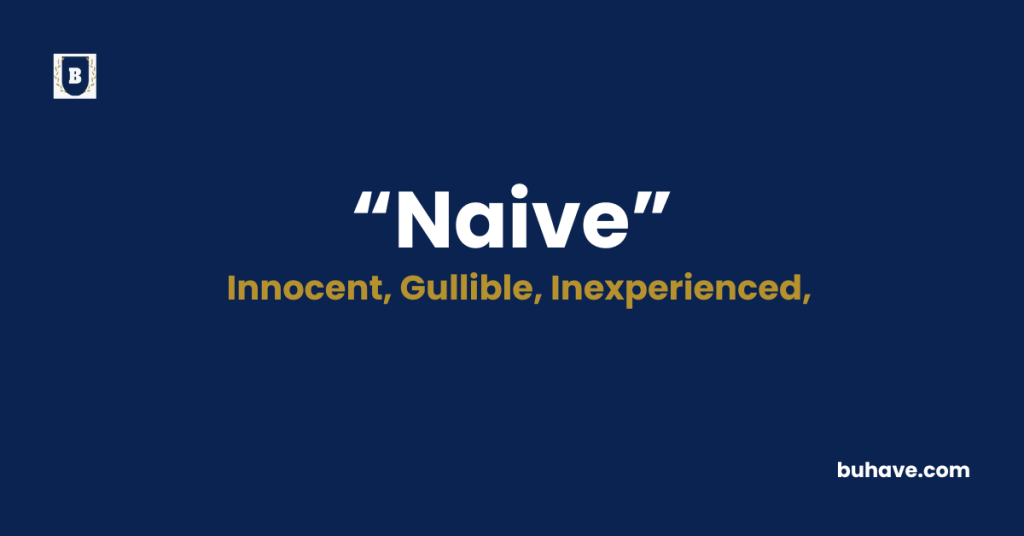The word Naive (Adjective) refers to showing a lack of experience, wisdom, or understanding, often in a way that is innocent or trusting. In this guide, you’ll learn the full definition, synonyms, antonyms, etymology, and real-life examples of how to use Naive correctly in sentences.
Naive Explained in Depth
A complete and detailed guide to the word Naive including meaning, definition, examples, etymology, synonyms, and antonyms.
Meanings of Naive
Naive means being simple, innocent, or inexperienced in how the world works. It can describe someone who trusts easily or does not see the potential for harm or complexity in people or situations.
Definition
Naive refers to a state of being unworldly, gullible, or lacking in sophistication. This often shows up in people who take others at face value, assume good intentions without question, or misunderstand the complexities of life. While naivety can stem from youth or sheltered environments, it is not always negative. In fact, being naive can also suggest openness, sincerity, or a belief in the good in others. However, in many situations, being naive might lead to disappointment, manipulation, or poor decision-making. The word is commonly used to describe behavior that overlooks risk, deception, or hidden motives. Although it may be used critically, it can also highlight someone’s honesty and hopefulness in a world that can be harsh and complicated.
Etymology
The word “naive” comes from the French word naïf (feminine naïve), meaning “natural” or “genuine.” It is derived from the Latin word nativus, meaning “native” or “innate.” Originally, it simply described something unaffected or sincere. The term entered English in the 17th century with this positive connotation, but over time, it evolved to include a sense of innocence or inexperience. In modern English, “naive” is often used to point out a lack of worldly understanding or judgment. Yet, its historical roots in purity and genuineness still influence how it is perceived. It remains a word that balances both charm and caution, depending on the context in which it is used.
Example Sentences
- She was naive to believe every promise he made.
- His naive optimism made others question his business decisions.
- Children are often naive about the dangers of the internet.
Naive Synonyms
- Innocent
- Trusting
- Gullible
- Unsuspecting
- Simple
- Inexperienced
- Unworldly
- Idealistic
- Childlike
- Openhearted
Naive Antonyms
- Wise
- Skeptical
- Cynical
- Experienced
- Wary
- Worldly
- Astute
- Shrewd
- Sophisticated
- Perceptive
FAQs about Naive
Here are some frequently asked questions (FAQs) about the word “Naive”
1. What does “naive” mean?
It means lacking experience or judgment, especially in a way that shows innocence or trust.
2. Is being naive always bad?
Not always. While it can be risky, it may also show a pure or kind-hearted nature.
3. Can adults be naive?
Yes. People of any age can show naivety in unfamiliar or emotional situations.
4. How can someone stop being naive?
By gaining experience, learning from mistakes, and asking questions before trusting others fully.

















